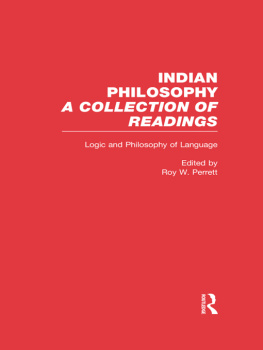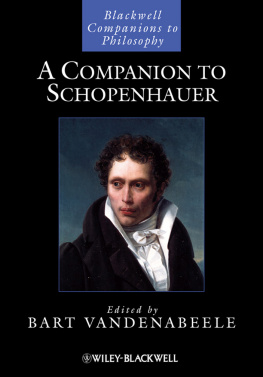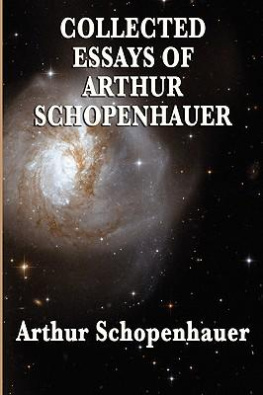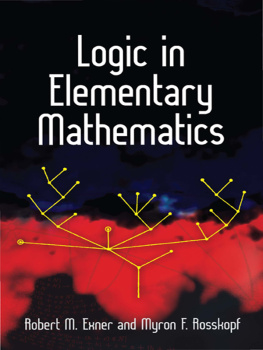Jens Lemanski - Language, Logic, and Mathematics in Schopenhauer
Here you can read online Jens Lemanski - Language, Logic, and Mathematics in Schopenhauer full text of the book (entire story) in english for free. Download pdf and epub, get meaning, cover and reviews about this ebook. year: 2020, publisher: Springer International Publishing, genre: Children. Description of the work, (preface) as well as reviews are available. Best literature library LitArk.com created for fans of good reading and offers a wide selection of genres:
Romance novel
Science fiction
Adventure
Detective
Science
History
Home and family
Prose
Art
Politics
Computer
Non-fiction
Religion
Business
Children
Humor
Choose a favorite category and find really read worthwhile books. Enjoy immersion in the world of imagination, feel the emotions of the characters or learn something new for yourself, make an fascinating discovery.
- Book:Language, Logic, and Mathematics in Schopenhauer
- Author:
- Publisher:Springer International Publishing
- Genre:
- Year:2020
- Rating:3 / 5
- Favourites:Add to favourites
- Your mark:
- 60
- 1
- 2
- 3
- 4
- 5
Language, Logic, and Mathematics in Schopenhauer: summary, description and annotation
We offer to read an annotation, description, summary or preface (depends on what the author of the book "Language, Logic, and Mathematics in Schopenhauer" wrote himself). If you haven't found the necessary information about the book — write in the comments, we will try to find it.
Language, Logic, and Mathematics in Schopenhauer — read online for free the complete book (whole text) full work
Below is the text of the book, divided by pages. System saving the place of the last page read, allows you to conveniently read the book "Language, Logic, and Mathematics in Schopenhauer" online for free, without having to search again every time where you left off. Put a bookmark, and you can go to the page where you finished reading at any time.
Font size:
Interval:
Bookmark:
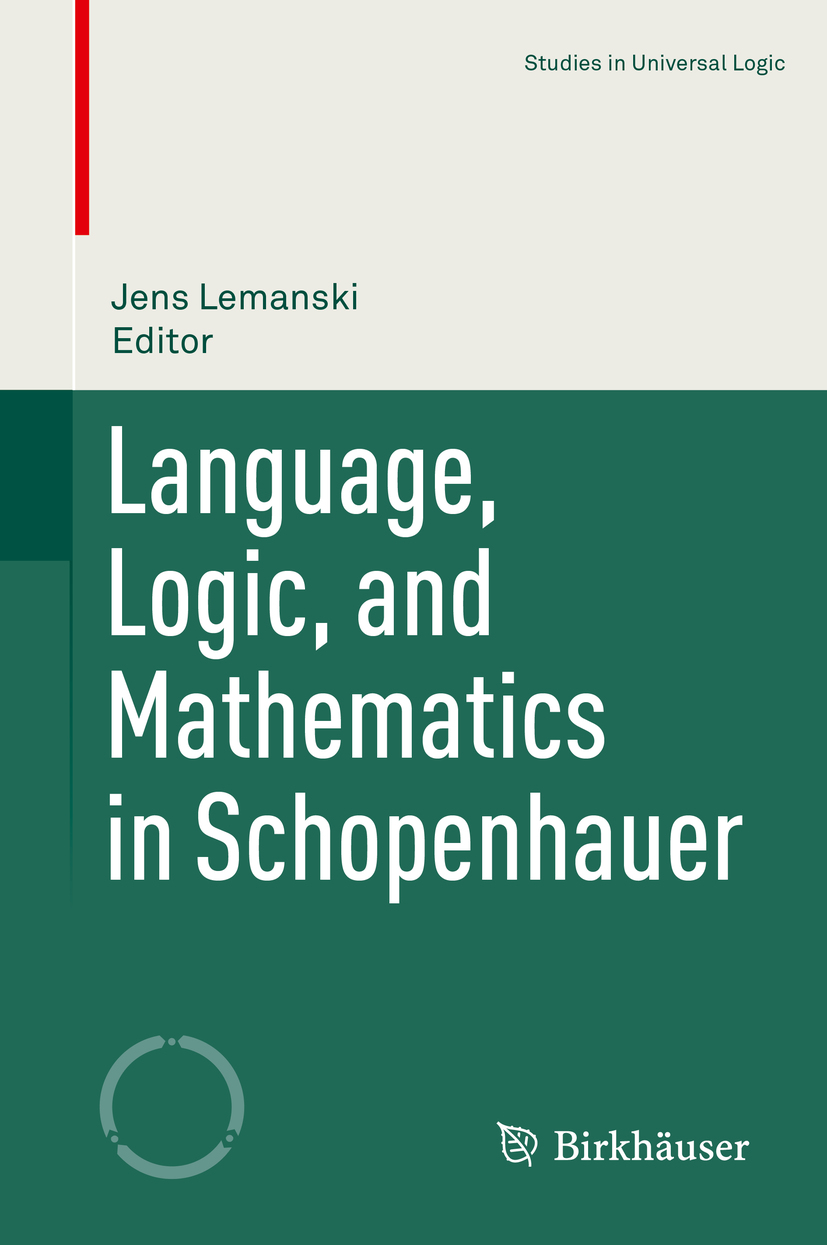
This series is devoted to the universal approach to logic and the development of a general theory of logics. It covers topics such as global set-ups for fundamental theorems of logic and frameworks for the study of logics, in particular logical matrices, Kripke structures, combination of logics, categorical logic, abstract proof theory, consequence operators, and algebraic logic. It includes also books with historical and philosophical discussions about the nature and scope of logic. Three types of books will appear in the series: graduate textbooks, research monographs, and volumes with contributed papers.
More information about this series at http://www.springer.com/series/7391 Edited by
Jean-Yves Bziau (Federal University of Rio de Janeiro, Brazil)
In association with
Hajnal Andrka (Hungarian Academy of Sciences, Budapest, Hungary)
Mark Burgin (University of California, Los Angeles, USA)
Razvan Diaconescu (Romanian Academy, Bucharest, Romania)
Andreas Herzig (Centre National de la Recherche Scientifique, Toulouse, France)
Arnold Koslow (City University of New York, USA)
Jui-Lin Lee (National Formosa University, Huwei Township, Taiwan)
Larissa Maksimova (Russian Academy of Sciences, Novosibirsk, Russia)
Grzegorz Malinowski (University of Lodz, Poland)
Francesco Paoli (University of Cagliari, Italy)
Darko Sarenac (Colorado State University, Fort Collins, USA)
Peter Schrder-Heister (University Tbingen, Germany)
Vladimir Vasyukov (Russian Academy of Sciences, Moscow, Russia)

This book is published under the imprint Birkhuser, www.birkhauser-science.com by the registered company Springer Nature Switzerland AG
The registered company address is: Gewerbestrasse 11, 6330 Cham, Switzerland
This paper is an introduction to the volume Language, Logic and Mathematics in Schopenhauer. It shows the basic interpretations discussed in Schopenhauers research, explains the aims and tasks of Schopenhauers philosophy and shows the importance of language, logic and mathematics in Schopenhauers system.
It is probably not often the case that all three terms given in the title of the volume are mentioned in the same breath, and then also in connection with Arthur Schopenhauer. At first glance, the philosopher, who was born in Gdansk in 1788 and died in Frankfurt in 1860, seems typically not to be associated with any of the three topics mentioned, not with language, nor with mathematics, and certainly not with logic. Many philosophers seem to have a prejudiced view of Schopenhauer as a philosopher of the Irrational and of contradiction: His philosophical systemso the view might gois determined by the irrational principle of the will, which man should finally overcome in a mystical way and with the help of self-knowledge. In such a system, themes such as language, mathematics or logic, which are considered rational and exact, do not seem to play a significant role.
Serious scholarly opinions testify to this prejudice: The Romanist Eugenio Coseriu, for example, already judged as follows in the title of his 1979 essay: The Case of SchopenhauerA Dark Chapter in German Language Philosophy [, p. 431]
But these extreme positions have not remained without opposition: Gerold Ungeheuer, a famous communication scientist in Bonn has vehemently defended Schopenhauers philosophy of language against Coseriu: According to my judgment [] Coserius claims are mistaken, and according to my insight Coserius methods are contestable [].
Font size:
Interval:
Bookmark:
Similar books «Language, Logic, and Mathematics in Schopenhauer»
Look at similar books to Language, Logic, and Mathematics in Schopenhauer. We have selected literature similar in name and meaning in the hope of providing readers with more options to find new, interesting, not yet read works.
Discussion, reviews of the book Language, Logic, and Mathematics in Schopenhauer and just readers' own opinions. Leave your comments, write what you think about the work, its meaning or the main characters. Specify what exactly you liked and what you didn't like, and why you think so.

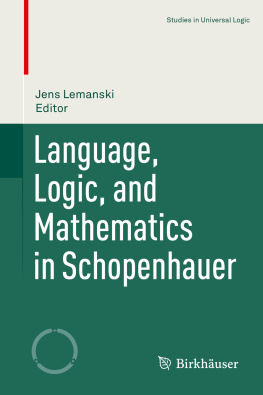
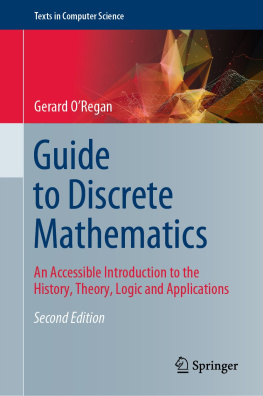
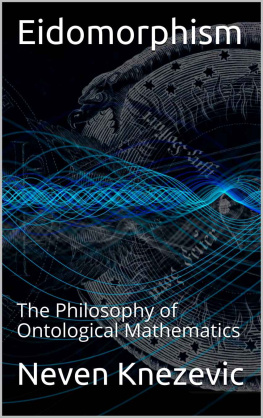
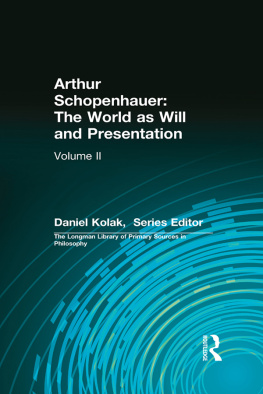
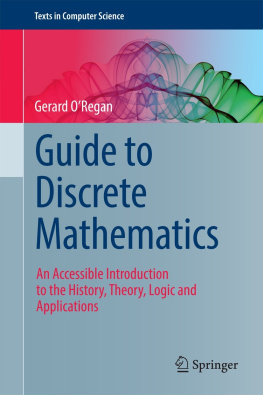
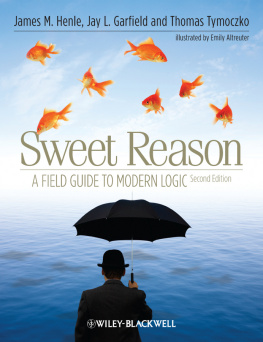
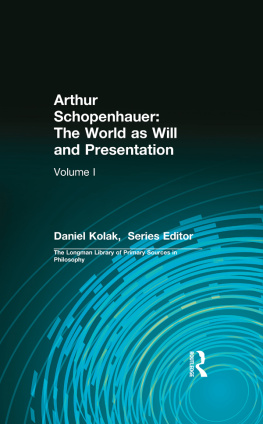
![Jens Gustedt [Jens Gustedt] - Modern C](/uploads/posts/book/146099/thumbs/jens-gustedt-jens-gustedt-modern-c.jpg)
